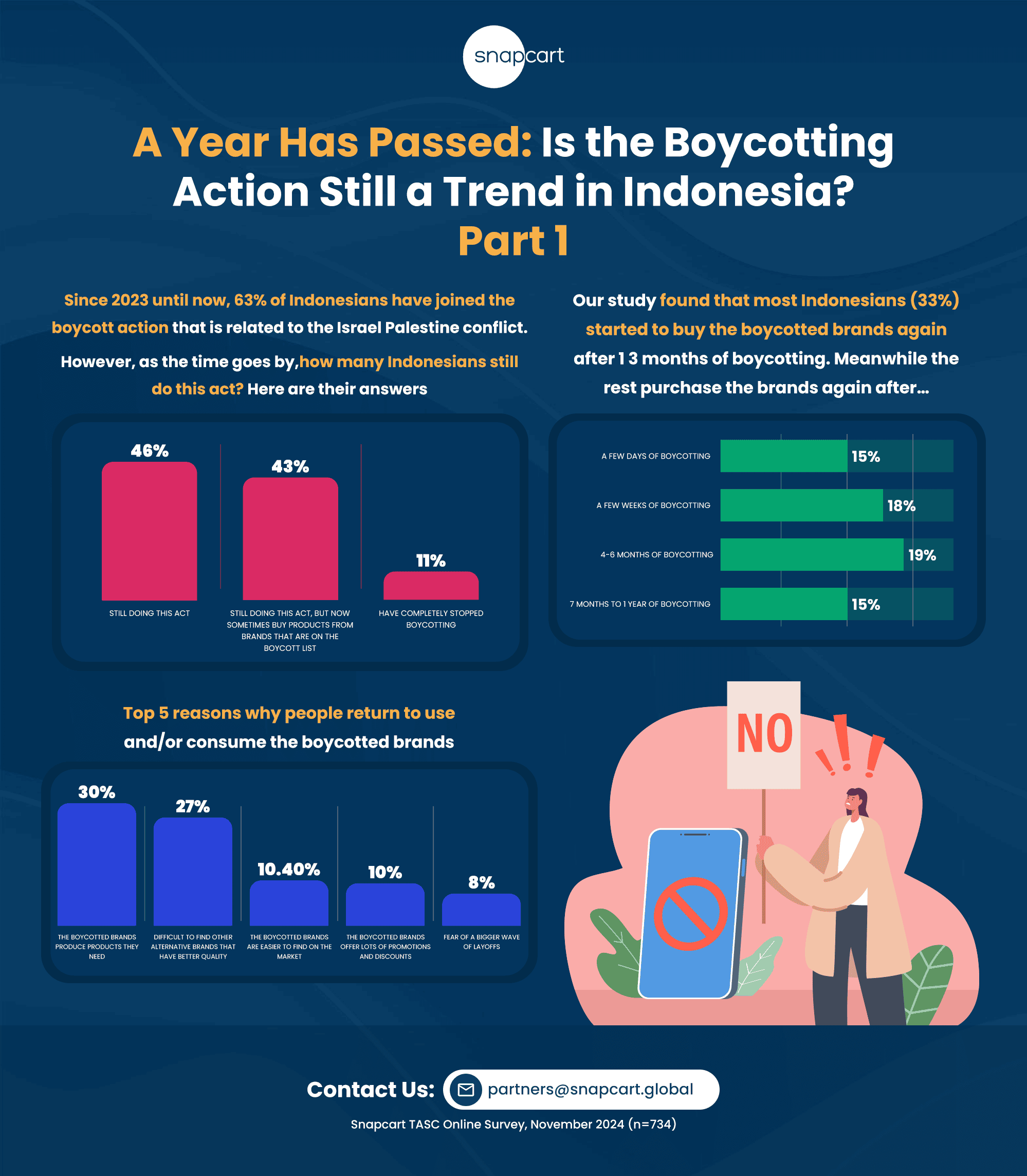The Israel-Palestine conflict has stirred global sentiments, including in Indonesia, where a significant portion of the population has engaged in boycotts against certain brands.
Viral since 2023, many Indonesians have participated in this action. However, how strong is their commitment to boycotting over time?
Check out the fact from our latest study, as represented in the infographic below.

According to our 734 respondents’ statements, we discovered that a year after the boycott trend began, the level of Indonesian participation in this action has shifted:
- 46% of Indonesians are still actively participating in the boycott.
- 43% continue the boycott but occasionally purchase products from the boycotted brands.
- 11% have completely stopped boycotting.
While a majority still participate to varying degrees, the data suggests a gradual decline in strict adherence to the boycott.
Returning to the Boycotted Brands
This survey found out that 33% of Indonesians has continued purchasing boycotted brands after 1-3 months of boycotting, which shows a notable trend of diminishing commitment over time. Meanwhile the rest of them…
- 15% returned after just a few days of boycotting.
- 18% returned after a few weeks.
- 19% resumed buying after 4-6 months.
- 15% returned within 7-12 months.
This trend indicates that while initial support for the boycott was high, it gradually wanes as time passes.
Moreover, this study also explored the reasons why some Indonesians revert to purchasing boycotted products, such as:
- Quality and reliability of the products (30%): Many believe that boycotted brands produce essential and high-quality items.
- Lack of alternatives (27%): Difficulty finding better substitutes forces consumers to return to these brands.
- Product availability (10.4%): The boycotted brands are often easier to find on the market.
- Promotions and discounts (10%): Attractive offers lure customers back.
- Job security concerns (8%): Fear of layoffs in local industries tied to these brands influences consumer behavior.
This research shows the decision to resume purchasing often revolves around product quality, availability, and economic factors like discounts and employment concerns.
As this trend evolves, it highlights the complex interplay between ethical considerations and consumer habits in Indonesia. For brands, understanding these dynamics is crucial to navigating such situations effectively.
Contact us at partners@snapcart.global for more information.





